Andrew Furst's Blog, page 53
July 12, 2016
On the Road – Patreon Colorado Photo Collection
.
I took a road trip, perhaps not purely in the style of Jack Kerouac, but he was on my mind. I flew into Denver, drove down to Cimarron, New Mexico to pick up my son, continued on to Albuquerque and then turned around.
As you know, getting out to nature is something that I encourage (in fact my book Clouds Tell Us is a collection of poetry about this entirely). The drive and the stops I made along the way provided a lot of awe inspiring photography moments, but most moments will remain only memories. I encourage you to see the Rockies, if not to only see them rise out of the plains from the Denver airport.
Here’s a collection of images I wanted you, my Patreon supporters to see first. I liked them a lot.
Apache, Colorado
This is an exit to nowhere off of Interstate 25.
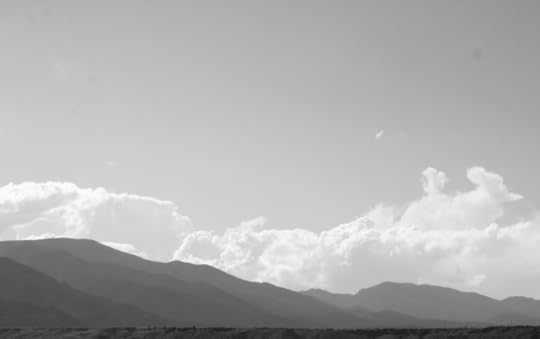
Seven Falls, Colorado Springs
If you know me, you know there will be waterfalls.
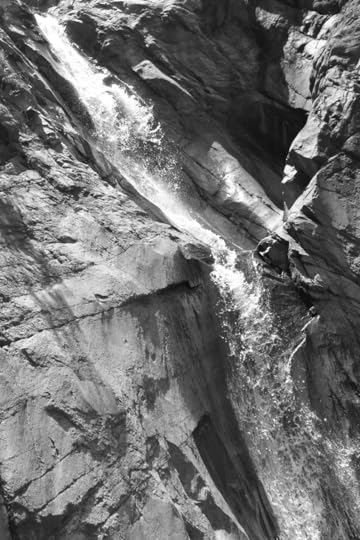
Simpsons Rest, Trinidad, Colorado
Where the town founder is laid to rest.
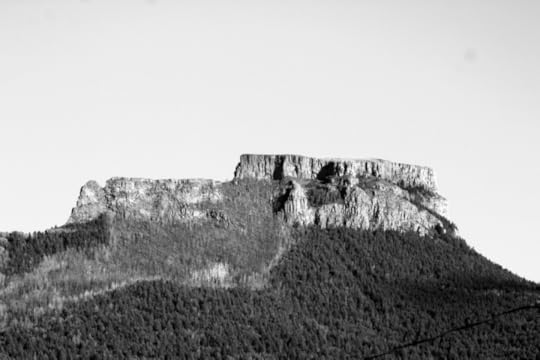
Cimarron Canyon Palisades
After a layover in Raton, NM, I had time to kill before my son came down from the back country, so I drove to Taos, NM. The drive is gorgeous, if not long and winding.
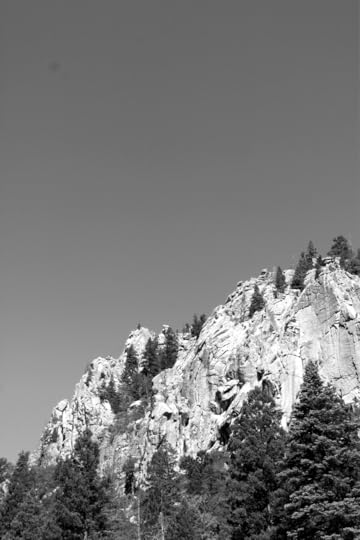
Albuquerque, NM
After taking care of business in Albuquerque, my son and I drove to the base of Sandia, the large looming mountain guarding the city from the north. The cacti were in bloom.
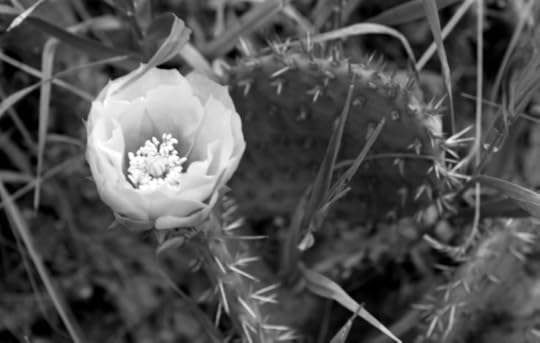
Route 66, Albuquerque
Yes, we got our kicks.
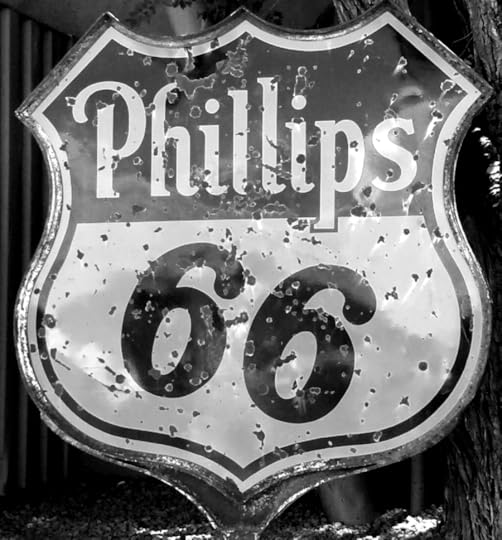
Cimarron Sunset
The view from the St James Hotel, where my son and I stayed in the Wyatt Earp room (yes Wyatt slept there)
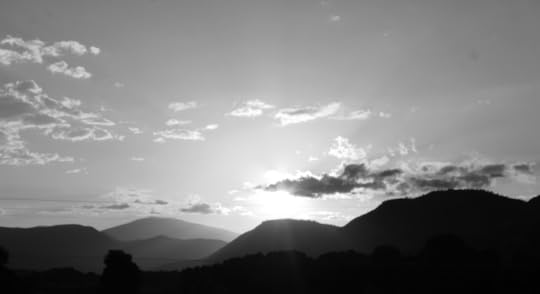
Morning Greeter
The greeter outside my hotel room in Manitou Springs
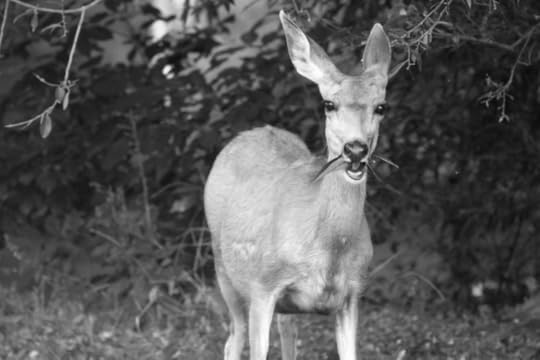
Garden of the Gods
Manitou Springs beautiful rock formations park.
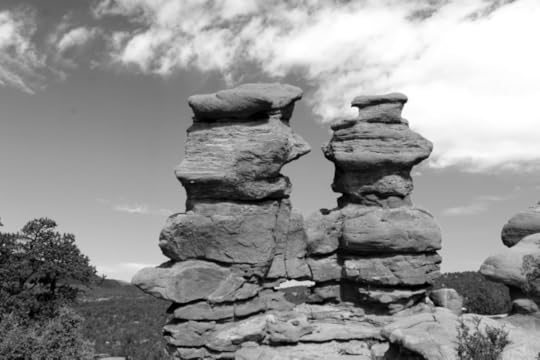
Helen Hunt Falls
Not far from Seven Falls (shown above). These were named after a 19th Century American poet who became an activist on behalf of improved treatment of Native Americans by the U.S. government.
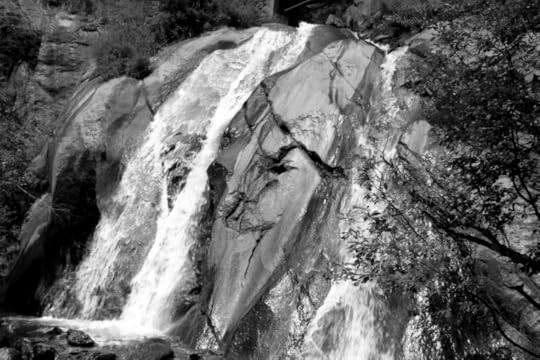
Desert Color
Life is on display everywhere, even in the arid deserts of New Mexico. It comes in the simplest forms. Enjoy them.

The post On the Road – Patreon Colorado Photo Collection written by Andrew Furst appeared on Andrew Furst.
July 11, 2016
From Zero to Buddhist – 10 Principles For Finding Your Religion
Estimated reading time: 19 minute(s)
I was born in Connecticut in 1964. My parents joined Second Congregational church in Manchester, about a mile from our house, when my sister and I were old enough to go to church. I attended Sunday school there, getting my first Bible from a snowy white haired minister with a warm and loving smile. He made a good first impression. In his kindness there seemed to be room for possibilities.
However, I was always very skeptical in church. At first, my doubt was childish, but it became more serious as I grew older. I remember arguing in Sunday school with the teachers and leaving with confusing and unsatisfactory answers. Most kids who go through church school will have this experience. After all, the well meaning parent volunteers who taught us were certainly not theologians. And even if they were, having an hour to teach us about Job’s trials and maintain order seems like a recipe for failure.
I was confirmed at Second Congo and remained there until I went to college. I really enjoyed the youth group, retreats, and summer camps. In general, it was a very good experience and a great environment to grow up in. I learned the pleasure of volunteering and grew up under the wing of a community of adults who truly cared about their kids and wanted to give them a strong foundation for life. But, in the end, it was easy to leave behind.
So Why Buddhism?
My religious trajectory can be summed up pretty simply.
I was Baptized Christian
I was unmotivated to stay connected to my church as a young adult
My skepticism created doubt
My doubt and study led me to atheism
I began to seek
Buddhism spoke to me
It’s probably true that I’m a special case. I would guess that for a majority of Americans, the path is circular. Most of us probably to cycle back to our root religion after doubt or seeking. We might switch from being Baptist to Catholic, Episcopal to Evangelical, or some other variation on the theme.
I fell pretty far from the wagon. I think there are a lot of contributing factors. The image below is a collection of reasons – both positive and negative – that led to my choice. The concepts will probably call up relevant and personal experiences with your root religion.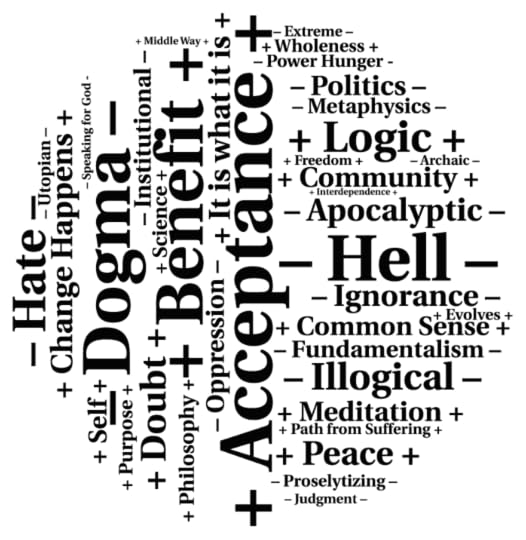
I’ll let the words speak for themselves.
We Always End Up Seeking
Humans are born with the seed of existential crisis. Quandaries about purpose, meaning, and who we are will nag at us over the course of our lifetime. In this age of leisure in the west, these questions seem to trouble us even more. There is a void that we try to fill through consumption, relationships, experiences, or even God. This seeking is important because it impels us to right ourselves with the world. Being right with the world can bring satisfaction and has the potential to create harmony.
So seek we will, seek we must. But how? All religions claim to offer the answers you’re looking for, but very few offer help in how to seek.
Finding Your Religion
As I sought (and continue to seek), I’ve found myself using and reusing a few principles. I hope they can be helpful in your search.
Certainty vs. Mystery (Knowing and not knowing) For me questions are often more interesting than answers, especially when it comes to religion. What constitutes a correct answer is usually subjective. A religious mentor who walks the line of what is knowable and what is not, is a good friend to have.
Truth vs truth (Wisdom vs Facts) Where fundamentalism presides, there is a belittling of the divine. Treating of religious texts as an accurate literal description of nature is insulting. Knowing what we do know about the vastness of the universe and its workings, it would be pure arrogance to assume that something worthy of worship can be encapsulated in the pages of a few human authored books. Religious texts are rich, allegorical, and contradictory. They impart wisdom, not facts.
Your relationship with the world (Interdependence) Recognizing and valuing our dependence on nature and each other is both a practical necessity and a key to discovering the divine. Whatever faith you choose should reflect this.
Your relationship with the divine (Other Power) What is it that is worthy of worship? This is a fertile question. As I’ve said before, questions can be more valuable than their answers. The concept of divinity is transcendent, and therefore slippery. We should be careful with simplistic anthropomorphic images of God. We should also acknowledge our frailty and dependence on what I would call “Other Power.” Cultivating an attitude of humility in the face of the sheer vastness of the universe and its mystery is worthwhile. Whatever path you choose should consider a relationship with the divine with a deep respect for what we don’t and can’t know.
Asceticism vs Hedonism (The Middle Way) An institution that rejects the world as it is, discards the basis for logic, reason, and common understanding. One that exalts personal pleasure will only lead to dissatisfaction, because the nature of pleasure is fleeting and temporary.
Original Nature (Nature/Nurture) Our character as a species and as individuals is complex. A disparaging or overly forgiving view of human nature is distorting.
Our nature lies in a gray blend of original sin and original blessing, and is not limited to these dimensions. Leading theories of consciousness and the inner human life contradict our intuitions of what makes us tick. A religious tradition that clings to these old notions will not stand the test of time.
Rules vs Precepts Religion as an institution can often be at odds with the teachings of its prophets. Paul’s Christ is very different from James’ Christ. Much of these disparities are the result of theological battles within a tradition that tend to be resolved by cataloging orthodoxy and heresy. These early conflicts occurred in every religion, including Buddhism. This process of institutional homogenization tends to move towards oversimplification and benefits the church more than its members. Teachings that seem to exist to legitimize authority should be rightly held in doubt.
Apostasy and the Path In my opinion apostasy is a thinly veiled theological trick to preserve power. Creation speaks wonders to us in its order and its immensity. We need only open our eyes and notice. Institutions preserve the valuable insights of our ancestors, but when the institutions and the people who wield their power become self-serving, there is reason to be wary.
Biases It is a well-established fact that humans are cursed with a powerful confirmation bias. We see the world through the prism of our beliefs. We’re blind to evidence that contradicts them and find in everything else validation for them. A religious awakening must come with eyes wide open. It must reconcile the world as it is and the prophets. Unsubstantiated belief may offer people hope, but it fails as a means for salvation or liberation.
Community and Faith Humans are social animals. Most religious communities, including the church I grew up in, provide a wholesome positive environment. This is a compelling reason to join a faith tradition. But one should be careful to separate the benefits of the community with the veracity of its religious tenets.
I wish you well on your search for a religious home. It’s your own and no one else can do it for you. Keep your eyes and mind open, notice your biases, and remember all that glitters is not gold.
Dialectic Two-Step is an ongoing series of my thoughts on questions that come my way.
Wisdom lies neither in fixity nor in change, but in the dialectic between the two. - Octavio
Get Each Week's Dialectic Two Step In Your Email Box
If you enjoyed this post, please like and share.
The post From Zero to Buddhist – 10 Principles For Finding Your Religion written by Andrew Furst appeared on Andrew Furst.
July 10, 2016
A Cool Head and No Control – Verse Us (Poems by Me)
.
Against the wheel
Putting the cart under the cosmos
We don’t have much hope
to damper its momentum.
But breathing at the edge
Of a hurtling rock (2.7 million mph)
Hints to me
We stay on the cart and leave the brakes alone.
Juggling is where it’s at
We can at least be on contact
With what we think we regulate
And blame it on the driver if we drop the balls.
Control – Latin contra- “against” + rotulus, diminutive of rota “wheel”
Verse Us - Poems I write: haiku, senryu, mesostics, free verse, random word constructions, I might even use rhyme or meter once and a while.
Get Each Week's Poems In Your Email Box
If you enjoyed this post, please like and share.
The post A Cool Head and No Control – Verse Us (Poems by Me) written by Andrew Furst appeared on Andrew Furst.
July 9, 2016
Leave The Rest – Say What?
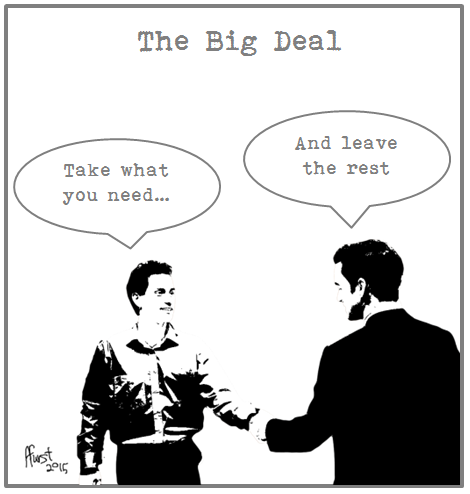
Say What? is an ongoing series of laconic exchanges on Buddhism in the format of a comic strip.
Get Each Week's "Say What?" Comic In Your Email Box
If you enjoyed this post, please like and share.
The post Leave The Rest – Say What? written by Andrew Furst appeared on Andrew Furst.
July 8, 2016
War – What’s It Good For? Thoughts on Dallas – Modern Koans
.
More death in a war that has lasted over 400 years in this country. It is a war that will not be won in body counts and guns, but with the death of generations of prejudice and distrust. I hope that the officers in Dallas get the justice they deserve for putting their lives on the line everyday. I hope that the innocents who have died get the justice they deserve, for having their lives put on the line because of the color of their skin.
What’s your take on #BlackLivesMatter? What about #BlueLivesMatter? Are they in conflict?
I'd love to hear your thoughts in the comments below.
Modern Koans is an ongoing series that recognizes that good questions are often more important then their answers.
The riddles of God are more satisfying than the solutions of man. ― G.K. Chesterton
Get Each Week's Modern Koans In Your Email Box
If you enjoyed this post, please like and share.
The post War – What’s It Good For? Thoughts on Dallas – Modern Koans written by Andrew Furst appeared on Andrew Furst.
Is There an Afterlife? – Modern Koans
Question: Is There an Afterlife?
A common response: We will eventually find out. In the meantime, I want to live like there is one, because it makes me a better person. If it didn’t, there would be no purpose to this life.
My response: I agree and disagree with this typical response
I agree that we will eventually find out (or not be able to find out). But generally, I think the idea of an afterlife is too loose to make any kind of claim about its veracity. Ask a few questions about the details and the idea implodes.
For instance, what is it that survives into the afterlife? It’s certainly not our bodies. If it is a soul, what is that? If the soul is separate from the senses, how could we possibly experience the afterlife? If the brain carries our memories and is destroyed at death, how does the soul know who it is in the afterlife? If the soul isn’t us, than can we actually say “we” will experience an afterlife? I could go on. Generally, the simple question “is there an afterlife?” is not answerable and probably doesn’t offer any insight for us to benefit from.
Generally, the simple question “is there an afterlife?” is not answerable and probably doesn't offer…
Click To Tweet
On the next point, I disagree that the afterlife might provide incentive and purpose to this life.
Humans respond best to intermittent (repeated, but somewhat random) reinforcement. Our behavior is much less likely to change in response to a large but entirely uncertain payoff. I think we all have higher principles that we aspire to live by, all religions espouse them, but truly internalizing them and bucking our internal wiring is a huge challenge. Aspirations beyond what is natural seems at odds with the world as it is and if you believe in a creator, it seems at odds with them as well.
Aspirations beyond what is natural seems at odds with the world as it is and if you believe in a…
Click To Tweet
As for purpose, this is well understood. Evolution has established that we are DNA replicating and transmitting machines. Any other purpose would likely be contrived unless it had the same weight of proof behind it as say evolution.
I have one last piece of advice about being a better person. When playing with others, consider the findings of the prisoner’s dilemma, which teaches us that a combination of cooperation and effective deterrents lead to the best outcomes for everyone. I find that of all religions, Buddhism seems most aligned with these scientific findings. If we are awake, we will be capable of viewing the world as it is (and less about seeing the world through the prism of a world view). If you are awake, you are able to naturally respond to the world as it is, of course using our special proclivity to overrule our DNA’s programming – our minds – as is needed in this modern world. This will make you a better and happier person.
What is your opinion on the afterlife? Is the question worth your time and energy?
I'd love to hear your thoughts in the comments below.
Modern Koans is an ongoing series that recognizes that good questions are often more important then their answers.
The riddles of God are more satisfying than the solutions of man. ― G.K. Chesterton
Get Each Week's Modern Koans In Your Email Box
If you enjoyed this post, please like and share.
The post Is There an Afterlife? – Modern Koans written by Andrew Furst appeared on Andrew Furst.
July 7, 2016
John F. Kennedy on Conformity – Quotes
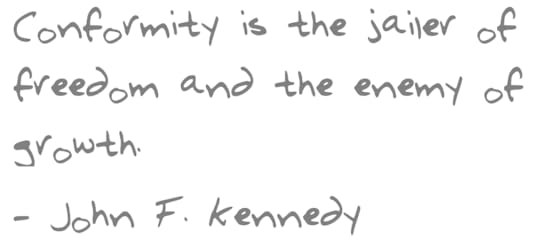
Quotes -The path to right view is an arduous walk through fields of manure.
Get Each Week's Quotes In Your Email Box
If you enjoyed this post, please like and share.
Conformity
The post John F. Kennedy on Conformity – Quotes written by Andrew Furst appeared on Andrew Furst.
July 6, 2016
Pensive Autumn – Tiny Drops

Get Each Week's Tiny Drops In Your Email Box
All Tiny Drop photos Attribution-NonCommercial-ShareAlike 4.0 International (CC BY-NC-SA 4.0)
If you enjoyed this post, please like and share.
The post Pensive Autumn – Tiny Drops written by Andrew Furst appeared on Andrew Furst.
July 5, 2016
Making a Waterfall Meditation Video – Finding Waterfalls
.
I’ve been traveling around New England for several years now shooting video of waterfalls for my meditation series. While I sometimes upgrade my equipment (I added the olloclip lenses last year), I’ve been working with the mostly the same tools. In this first article in the series, I want to offer some advice for finding waterfalls. I’m focused on New England, but if you’re not, the World Waterfall Database listed below can point you to waterfalls and resources for any part of the world.
At the time of this writing, I’ve visited over 30 waterfalls in New England. I’ve chosen and got to them using the following three resources.
Finding Waterfalls
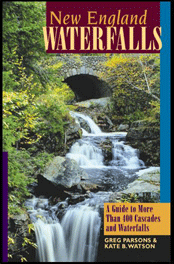
New England Waterfalls – a great guide to the best falls in New England. It includes a rating of the falls, best time to visit, directions, and trail instructions. I bring the book with me to all the falls. It’s worn and well loved
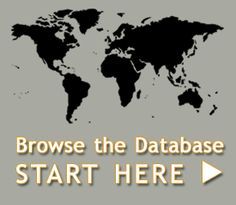
The World Waterfall Database a great resource for all waterfalls everywhere. There is also a great Waterfall Guidebook Library with references to almost 100 books on waterfalls around the world
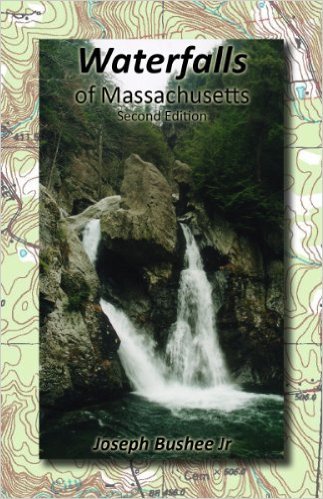
Waterfalls of Massachusetts: Second Edition – includes several local falls that aren’t listed in the New England Waterfalls book
There are so many waterfalls and so little time. Use these resources to choose wisely. There are a lot of ways to approach this. Do you want an easy hike? Or are you willing to bushwhack? When can you travel? Are you looking for a big bang and you’re willing to travel or do you want to explore local treasures? The New England Waterfalls book rates all their waterfalls on these criteria and more. They also have a list in the back of the book of other falls that don’t have chapters in the book. For me, this book has been a rich resource. When searching for falls in your area, I recommend you evaluate your choices on what’s right for you.
Future Articles
This is the first of several articles on making waterfall meditation videos. Stay tuned for more
Photo Equipment
Audio & Video Editors
Soundtrack Music

The post Making a Waterfall Meditation Video – Finding Waterfalls written by Andrew Furst appeared on Andrew Furst.
July 4, 2016
Freedom Isn’t Free
Think! When Aretha Franklin makes a declaration, we listen (and dance a little). Declaring freedom and living it are two different things. As she says, “You have to think about what you’re trying to do” and how it affects your relationships. You still have to think about the consequences of your actions.
Happy Fourth of July. As you watch fireworks and grill, take some time out to consider what freedom means. You need me, and I need you, without each other, there ain’t nothing each other can do. Freedom isn’t free.
The post Freedom Isn’t Free written by Andrew Furst appeared on Andrew Furst.



